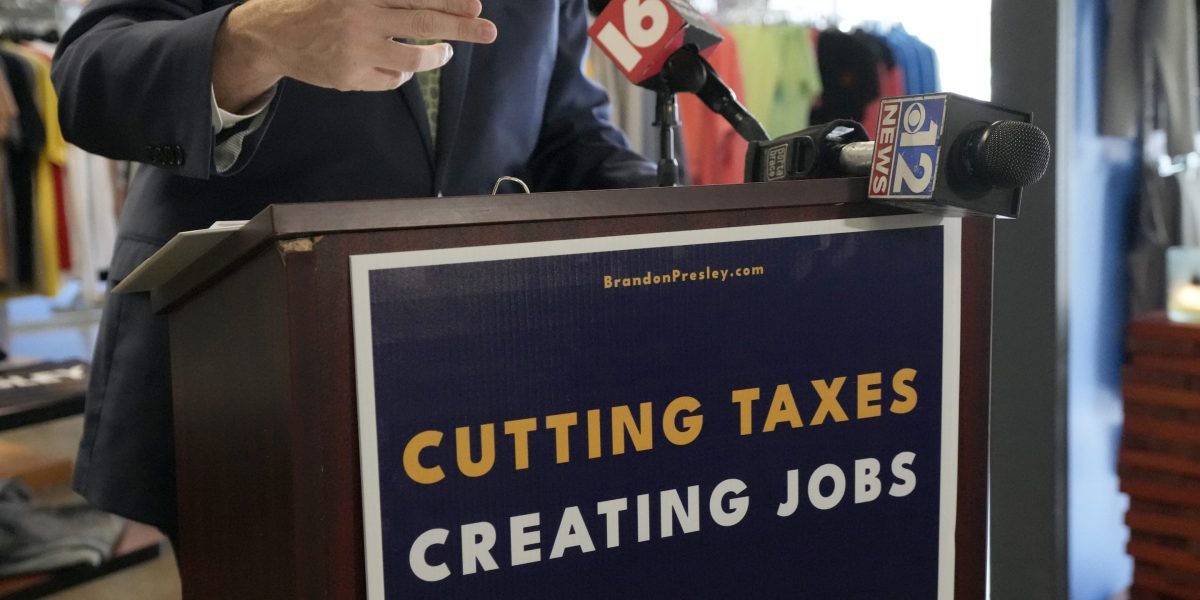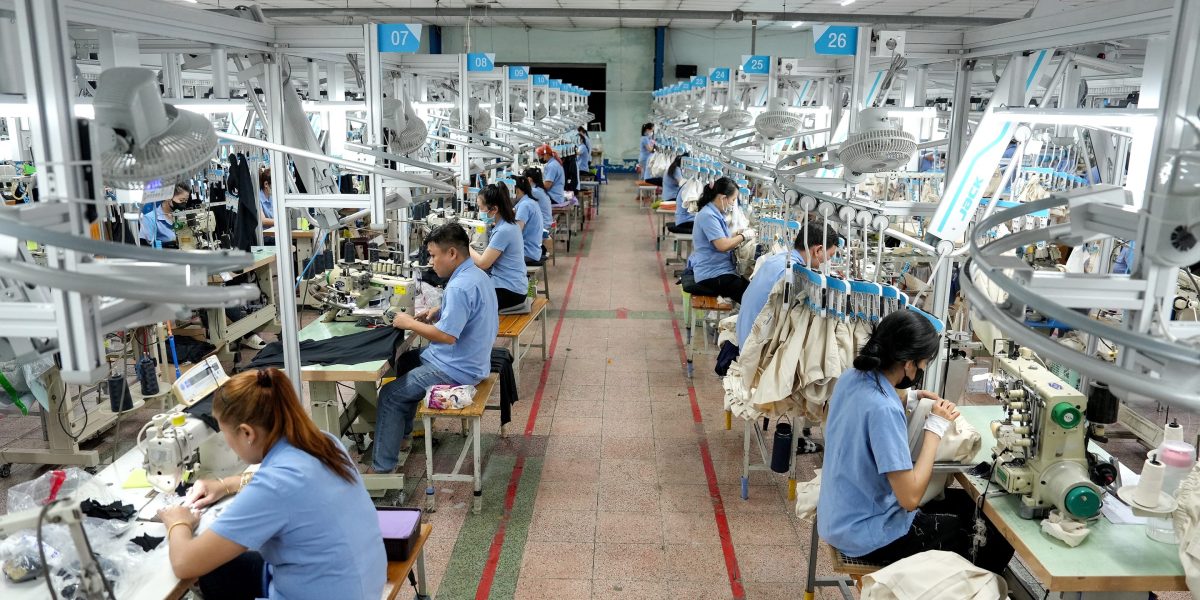Elon Musk and his political operatives have tried to shape the closely watched Wisconsin Supreme Court race in ways that are not immediately obvious but could be critical to Tuesday’s outcome.
Musk’s America PAC has sent paid canvassers across Wisconsin since early February, before conservative Brad Schimel advanced in a nonpartisan primary to face liberal Susan Crawford for an open seat on the state’s highest court, where liberal justices hold a 4-3 majority and retirement this year of a liberal justice puts majority control of the court in play.
Over the eight weeks since, canvassers are expected to have reached hundreds of thousands of potential Schimel voters, based on the more than $4.3 million alone that spending records a week before the election showed America PAC had poured into this labor-intensive aspect of the campaign.
“As I travel around the state, I’ve been hearing from quite a few folks who say they’ve got America PAC knocks at their doors,” said Brian Schimming, the state Republican chairman. “And it’s not just in the big areas.”
Though the group has been aggressive in GOP-heavy Waukesha County in suburban Milwaukee, Schimming and others report hearing that America PAC canvassers have appeared in Racine County, a blue-collar area south of Milwaukee and areas such as Sauk County northwest of Madison.
“They have been on this more than anybody,” Schimming said.
Musk played up the stakes at an America PAC event Sunday night in Green Bay, saying Schimel was in danger of losing and calling for a movement to “dragnet the state.”
“Everybody’s going to mobilize everywhere like crazy for the next 48 hours,” he said. “And I think this will be important for the future of civilization. It’s that significant. You don’t hear me saying that very often. It’s a big deal.”
He encouraged attendees to sign up at America PAC’s website to be a “block captain,” for which they could earn $20 for knocking on doors in their neighborhoods and uploading a photo as proof.
“It’s … thumbs up and hold a picture of Judge Schimel. And that’s it, and you get $20,” he said.
Though America PAC declined to discuss details of its work, the group’s commitment confirms Musk’s uniquely powerful role in Republican politics as someone working closely with President Donald Trump and willing to spend tens of millions of dollars to boost Trump and his allies.
During the 2024 presidential election, Musk, the world’s richest person, committed more than $200 million to America PAC’s work on Trump’s behalf in the seven most competitive states, including Wisconsin, where Trump won by fewer than 30,000 votes, less than a percentage point.
The Wisconsin Supreme Court comes as the court is expected to rule on abortion rights, congressional redistricting, union power and voting rules that could affect the 2026 midterms and the 2028 presidential election. Musk and America PAC are trying to elevate Schimel, who has attached himself publicly to Trump and Musk.
America PAC representatives were working the crowd Friday at a Schimel rally in Beaver Dam, northeast of Madison. They were seeking petition signatures to oppose “activist judges.” The political action committee promised $100 for each Wisconsin voter who signed the petition and another $100 for each signer they referred.
Musk has become a Democratic target and the center of the party’s messaging against Schimel. Crawford, who is backed by liberal billionaires including George Soros and Illinois Gov. JB Pritzker, referred to her opponent in their debate as “Elon Schimel.”
Many standing nearby waved signs in protest to Musk.
“Musk Hates Judges Who Do Their Job!,” said one man’s cardboard sign, held over his head. The man next to him held one that simply said, “NO DOGE,” referring to the Department of Government Efficiency, Trump’s government cost-cutting effort, which Musk directs.
Musk drew widespread attention with the Sunday rally in Green Bay and his $1 million giveaways to people who sign the petition decrying judicial activism. Groups linked to Musk have spent more than $17 million to support Schimel in what’s become the most expensive judicial race in American history.
A significant portion of that money is going into the tedious but critical work of voter turnout.
As of one week before the election, America PAC had spent $4.3 million on canvassing alone, according to figures compiled by the Wisconsin Democracy Campaign, a nonprofit, nonpartisan organization that advocates for transparency in campaign spending.
Americans for Prosperity, a group founded by anti-tax billionaire brothers Charles and David Koch, is also canvassing in the supreme court race and also was active in Wisconsin during the 2024 campaign. But the group also was a distant second in the Supreme Court race, having spent only about a sixth of America PAC — $712,000 — on canvassing, according to the Wisconsin Democracy Campaign.
While the millions America PAC has spent on canvassing are far beyond what other groups have committed, America PAC also had spent as of last week at least another $4 million on mail, printing, online advertising, phone-banking, text messaging and other organizing costs, also far ahead of other groups.
The group was canvassing this month in Sauk County, where the presidential candidate who took the state has won in five straight elections.
Trump last year won Sauk — split between Democratic-leaning areas closer to Madison and a more conservative rural northwest — by 626 votes after Democrat Joe Biden won the county by 615 votes in 2020.
America PAC canvassers were in Sauk County knocking on doors last fall, trying to reach voters who had voted Republican in the past but had not been reliably active.
“America PAC is in our neck of the woods,” said Jerry Helmer, the county’s Republican chairman. “They were up knocking on doors in the Wisconsin Dells this month. America PAC has been doing a really good job in our area. They are just killing it in Sauk County.”
This story was originally featured on Fortune.com
Source link

 Entertainment8 years ago
Entertainment8 years ago
 Politics8 years ago
Politics8 years ago
 Entertainment8 years ago
Entertainment8 years ago
 Entertainment8 years ago
Entertainment8 years ago
 Tech8 years ago
Tech8 years ago
 Tech8 years ago
Tech8 years ago
 Tech8 years ago
Tech8 years ago
 Politics8 years ago
Politics8 years ago







